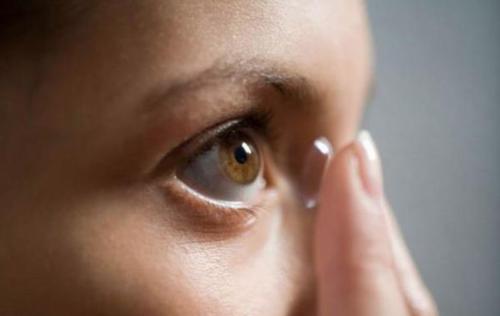Healthy diet
Some situations that are not suitable for wearing contact lenses
Not everyone can wear contact lenses under any circumstances. It is better not to wear contact lenses in the following situations.
Sitting at a computer desk for a long time. Under the computer radiation, the molecules of the original materials will change. Some of the small molecules after decomposition will reach the lens through the lymphatic circulation, and combine with the repair tissue of the lens to form a new polymer. A small amount of such polymer will be excreted along with the secretion, but as the accumulation is too much to be excreted, these impurities will accumulate in the crystal body, leading to cataract.
On the plane. Because the cabin belongs to a closed space, air conditioning is fully used, the air is relatively dry, and the eyes are easy to dry, so it is not suitable to wear contact lenses.
When I sleep. In order to release the cornea covered by contact lenses during the day, give it a little free breathing space, and let the eyes rest fully, of course, do not wear it. In order to prevent some people from falling asleep because they are too tired to read at night, the best way is to take off the contact lenses at home first.
Pregnant woman. The hormone secretion of pregnant women has changed, so does the water content in the body. The eyelid is swollen and the cornea is thickened, especially in the last three months of pregnancy. Because the cornea is more watery and thicker, it will not match with the contact lens selected in normal times, which will cause eye discomfort. In particular, pregnant women with edematous pregnancy should not wear contact lenses.
When swimming. Chlorine, bacteria and impurities in swimming pool are easy to cause eye diseases. If amoeba is infected, it may even lead to corneal ulcer.
People with eye diseases. Contact lenses are not suitable for patients with glaucoma, conjunctivitis, keratitis and dry eye.
A cold sufferer. Cold patients often have a lot of germs on their hands. They can easily get into the eyes when they take or wear contact lenses. In addition, cold often accompanied by mild inflammation of the retina, wearing contact lenses will aggravate the inflammation. Many cold, cough and analgesic drugs contain ingredients that inhibit tears. The reduction of tear secretion will make contact lenses too dry, reduce transparency, and affect vision.
Fever patients. When fever occurs, the local resistance of the eyes decreases, the secretion of tears decreases, and Bacillus subtilis will multiply in large numbers, which will deposit the metabolites between the cornea and the lens, resulting in the decrease of oxygen permeability of the contact lens, and the normal metabolism of the cornea will be disturbed, thus causing bacterial corneal ulceration.



